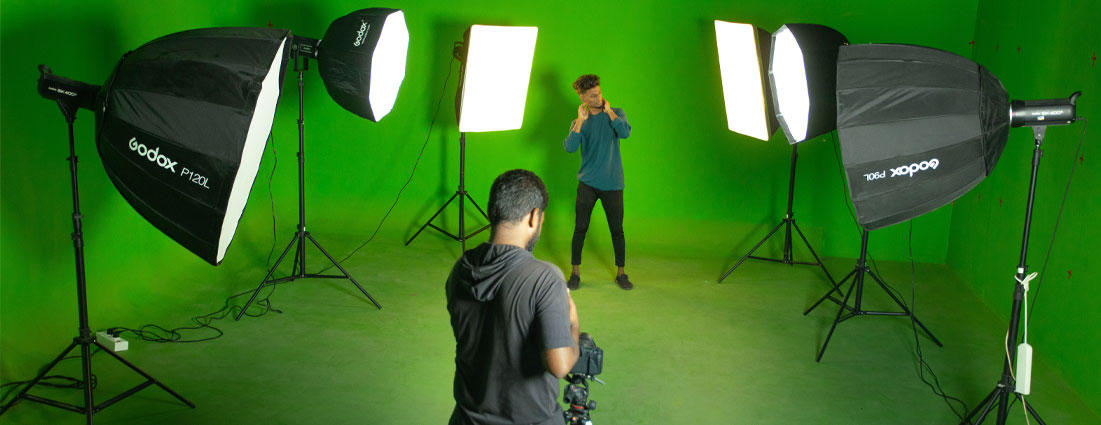A Diploma in Film Technology is a specialized course of study that focuses on the technical aspects of film production, such as Direction, Screenplay, cinematography, sound design, editing, and visual effects. This diploma program provides students with the necessary skills and knowledge to work in the film industry.
Diploma in Film Technology

Cluster Media College is an FTI-certified integrated film school in Coimbatore. Clusters hunt talented people and enhance professional pieces of stuff and ethics in them. The curriculum is designed relevant to the current trend in the field. This program is developed in the interest of providing students with the best knowledge in the film industry. The most important thing is that we expect our students to be passionate about Film-making and have a thirst to learn the art. Our cutting-edge tools and equipment give you enough confidence to handle real-time shooting spots. To unearth your talents and polish your skills, come and get the best training with us.
10th or Higher Secondary or equivalent
1 Year
Full Time
Direction/screenplay course offers unique opportunities to learn aesthetics, craft, and technique of film direction and screenplay writing from conceptualization to the completion of a film. Students are encouraged to explore the various narrative forms both in fiction and documentary film-making through rigorous theory classes, demonstrations, and practical modules. They are inspired to discover their artistic voice/vision and develop their cinematic skills under the guidance of experienced teachers and professionals of national and international repute.
Direction/screenplay course offers unique opportunities to learn aesthetics, craft, and technique of film direction and screenplay writing from conceptualization to the completion of a film. Students are encouraged to explore the various narrative forms both in fiction and documentary film-making through rigorous theory classes, demonstrations, and practical modules. They are inspired to discover their artistic voice/vision and develop their cinematic skills under the guidance of experienced teachers and professionals of national and international repute.
The outline of common concepts taught in cinematography classes are:
Visual storytelling
Lighting methods and techniques
Camera techniques
Scene composition
Working with a film crew
Acting involves a broad range of skills, including a well-developed imagination, emotional facility, physical expressible, vocal projection, clarity of speech, and the ability to interpret drama. Acting also demands the ability to employ dialects, accents, improvisation, observation and emulation, mime, and stage combat. After the successful completion of this course, the graduates are capable of various career offers in educational institutes, dance & drama schools, and film industry.
VFX refers to the procedure of creating imagery using live-action captured with film making. Visual effects created with the help of software are available for the movie makers, thanks to the development of cost-effective and simple to use computer software programs.
Video Editing is an upcoming and popular career option, this is a key role in the post-production process. As a film or video editor, you’ll be responsible for assembling recorded raw material into a finished product that’s suitable for broadcasting. The material may include camera footage, dialogue, sound effects, graphics, and special effects.
